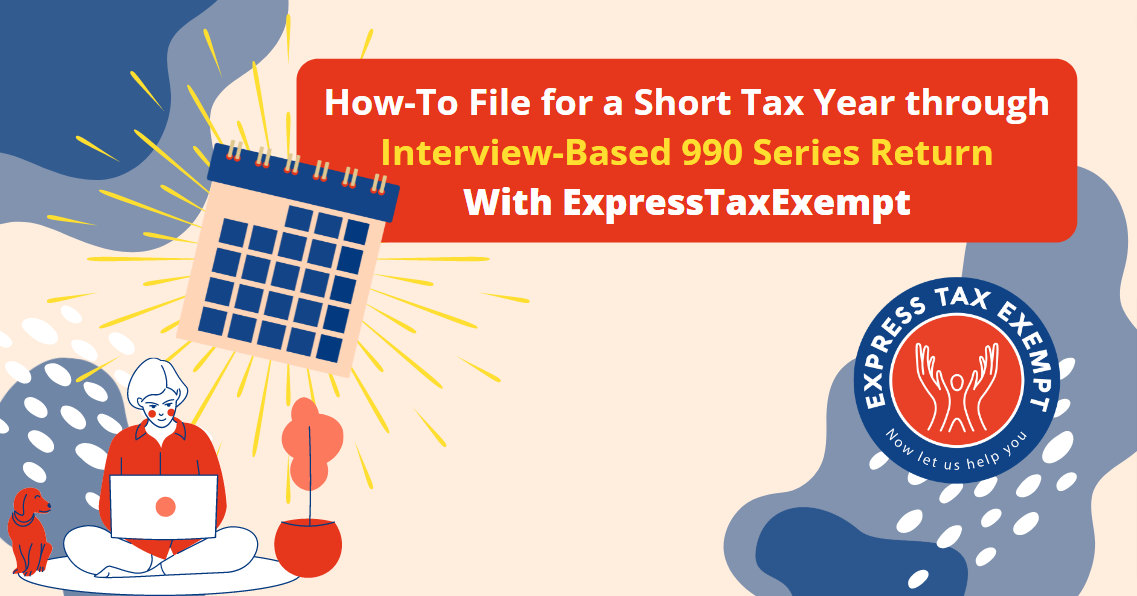




What is a Private Foundation?
In this article we will cover,

The IRS Mandates
E-filing of Form 990-PF
Get Started with ExpressTaxExempt, an IRS authorized E-file Provider for 990 Forms
and e-file your return before the due date.
Private Foundation - An Overview
- Updated April 21, 2023 - 1.00 PM - Admin, ExpressTaxExemptPrivate foundations or charitable foundations are 501(c)(3) organizations whose purpose is to provide grants to fund charitable activities . Private foundations are independent entities and their sole purpose is to contribute to charitable organizations. Based on a private foundation's activities, it may either be a private operating foundation or a private non-operating foundation.
Table of Contents
1. What is a Private Foundation?
A private foundation is a 501(c)(3) organization, whose purpose is to carry out a specific charitable mission. A private foundation is funded and controlled by an individual, family, or corporation.
2. How to start a Private Foundation?
There are always plenty of reasons to start a Private Foundation. Steps to start a
Private Foundation include:
- Step 1: Selecting a name for your foundation
- Step 2: Setting an Objective for your foundation
- Step 3: Apply for an EIN (Employee Identification Number)
- Step 4: File your Private Foundation’s documents with the IRS
- Step 5: File Form 1023 to get a 501(c)(3) tax-exempt status
Once your tax-exempt status is approved by the IRS, you can then start working on your foundation's goals.
Visit https://www.expresstaxexempt.com/501c3-tax-form-990-filing/ know about how to get 501c3 tax exempt status.
3. Different types of Private/Charitable Foundations
1. Private Operating Foundations - In general, a private operating foundation is a private foundation that devotes most of its resources to the active conduct of its exempt activities.
2. Exempt Operating Foundations - To qualify as an exempt operating foundation for a tax year, a private foundation must meet certain IRS requirements. These include
- It is a private operating foundation.
- It has been publicly supported for at least ten tax years or was a private operating foundation on January 1, 1983,
- Its governing body, at all times during the tax year, consists of individuals fewer than 25 percent of whom are disqualified individuals and is broadly representative of the general public, and
- It has no officer who is a disqualified individual at any time during the tax year.
3. Grant-Making Foundations A private foundation that is neither a private operating foundation nor an exempt operating foundation is sometimes referred to as a grant-making foundation or a private nonoperating foundation.
4. What is a Private Operating Foundation?
A private operating foundation conducts a charitable program of its own, much like a public charity does. The foundation must be significantly involved in its own project.
5. Difference between a Public Charity and Private Foundation
Public charities and private foundations are both considered tax-exempt, 501(c)(3) organizations by the IRS. Public charities receive most of their support from the general public and are required to prove that their funding has come from the general public. In contrast, private foundations typically derive their financial support from a specific individual or corporation and are self-funded. Another difference is that public charities are required to have a diverse board of directors whereas private foundations may be governed by a board selected by the donors.
6. What Form does a 501(c)(3) Private Foundation need to file?
All private foundations, regardless of size or revenue base, are required to file Form 990-PF annually. Form 990-PF is filed by a 501(c)(3) Private Foundation to report the charitable distribution and activities and also to calculate the tax based on investment income. Private Foundations need to attach Form 990 schedule B if they receive contributions more than $5,000 or more than 2% of revenues from any one of the contributors.






